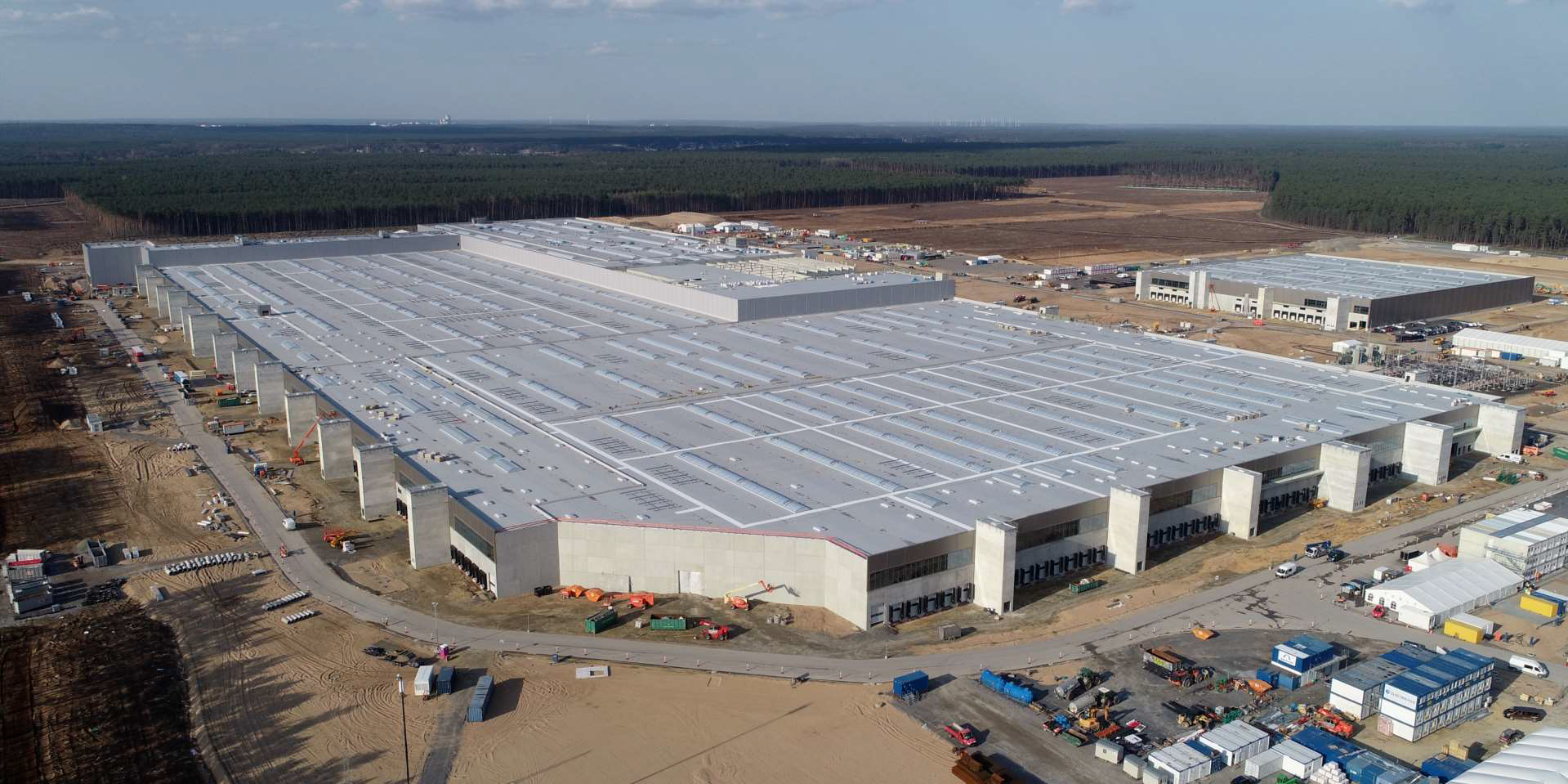
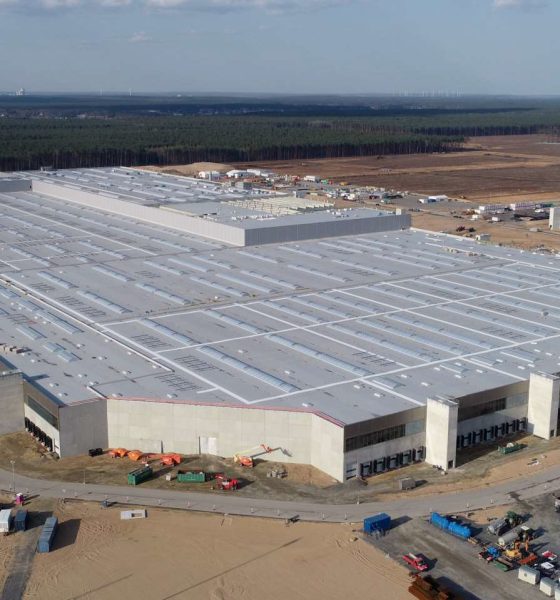
News
Tesla’s 4680 battery plant in Germany shouldn’t delay Giga Berlin’s initial production dates
Tesla’s Giga Berlin production facility is going to have a 4680 battery cell manufacturing plant on site. While some media outlets claim a delay in the Giga Berlin timeline should be expected due to the battery facility being added onto Tesla’s application, there isn’t any evidence to indicate that Tesla’s electric vehicles will be produced any later than the company expects.
The Tesla Giga Berlin production plant project has been one of the most anticipated vehicle manufacturing facilities in recent memory. But what started as Tesla’s way to introduce its products on a wider scale to the European market has become a long and drawn-out game of chess between the California automaker and German regulators. The most recent move in the plans occurred several days ago when Tesla finally decided to add its planned 4680 battery cell manufacturing plant to its application, bringing on the idea that the car company would be able to produce and install its own in-house batteries into its industry-leading electric cars.
However, the inclusion of the cell manufacturing plant in the newly revised application gives some the idea that Tesla’s project in Germany could sustain further delays. However, Teslarati sources in Germany say that the project shouldn’t incur any further delays; it will just require more deliberation on the part of the German authorities, who have the ultimate say in the project’s progress. While Tesla executives have recently voiced their discontent for the timeliness of the approval process, the sources indicate that German regulators are already talking about the inclusion of the 4680 battery factory at the Giga Berlin property, meaning the process, while deliberate, shouldn’t affect Tesla’s timeframes for initial EV production.
Tesla’s 4680 battery cells were unveiled at the company’s Battery Day in September 2020. The cells differ greatly from the 2170 cells by offering more energy, range, and power through numerous developments made by Tesla’s battery cell team.
Tesla originally planned to have Giga Berlin up and running later this year, and Summer 2021 was a timeframe that was commonly mentioned within the automaker’s plans. However, the ultimate authority who has the final say in when the electric vehicle manufacturing facility is the State Environmental Agency, who will now have to backtrack slightly as the application for Tesla’s production plant will need revisions due to the newly-included 4680 cell building will need to be considered. There is no separate application for the 4680 plant. Instead, it is simply added to the already-existing “master” application for the Giga Berlin facility.
“If this additional investment now flows into the permit application, it goes without saying that the application documents must be revised, and then the approval authorities have the last word,” Dietmar Woidke, Brandenburg’s Prime Minister, said, according to Automobilewoche. “We are well-advised to do everything we can to ensure that the entire permit for car production in Grünheide runs in a legally secure manner. The further process is currently being discussed.”
Tesla Giga Berlin’s battery factory deemed “very important” investment by minister
Woidke is a supporter of Tesla’s project and called the inclusion of the battery plant “positive news” for Germany as a whole. The plant, when finished, will provide a substantial number of employment opportunities for German citizens and will provide a healthy economic impact in the area.
German regulators have already taken their time with preliminary approvals for the facility due to refined and deliberate examinations of all elements involved. Tesla has been doing all of the work on the property without anything more than these preliminary approvals. Effectively, Tesla is running an “at-your-own-risk” construction project in Germany, and if regulators decide in a few months they do not want an electric vehicle manufacturing plant to operate in the area, Tesla will be required to bring the land back to its original state, assuming all financial risk. This scenario, while relatively unlikely, would be a blow not only to Tesla but the electric vehicle movement as a whole, as the largest EV company in the world would be extracted from the largest EV market in the world.
Tesla has likely come to the conclusion that the Summer production and delivery timeframe is not going to be achieved. In its latest Earnings Call Update Letter that was released on Monday, April 26th, the company said:
“In Europe, buildout of Gigafactory Berlin is continuing to move forward, with production and deliveries remaining on track for late 2021. Machinery for paint, stamping, castings, etc., continues to be moved into the building. In the meantime, we will continue to increase import volumes to Europe.”
However, the 4680 cell plant shouldn’t prolong Tesla’s initial vehicle manufacturing efforts. While the initial timeframes for vehicle production have been pushed back from the Summer to the end of the year, there is plenty of evidence to suggest that the 4680 plant’s inclusion will simply prolong Tesla’s construction efforts, and not necessarily the initial production effort’s start date.

Elon Musk
California city weighs banning Elon Musk companies like Tesla and SpaceX
A resolution draft titled, “Resolution Ending Engagement With Elon Musk-Controlled Companies and To Encourage CalPERS To Divest Stock In These Companies,” alleges that Musk “has engaged in business practices that are alleged to include violations of labor laws, environmental regulations, workplace safety standards, and regulatory noncompliance.”
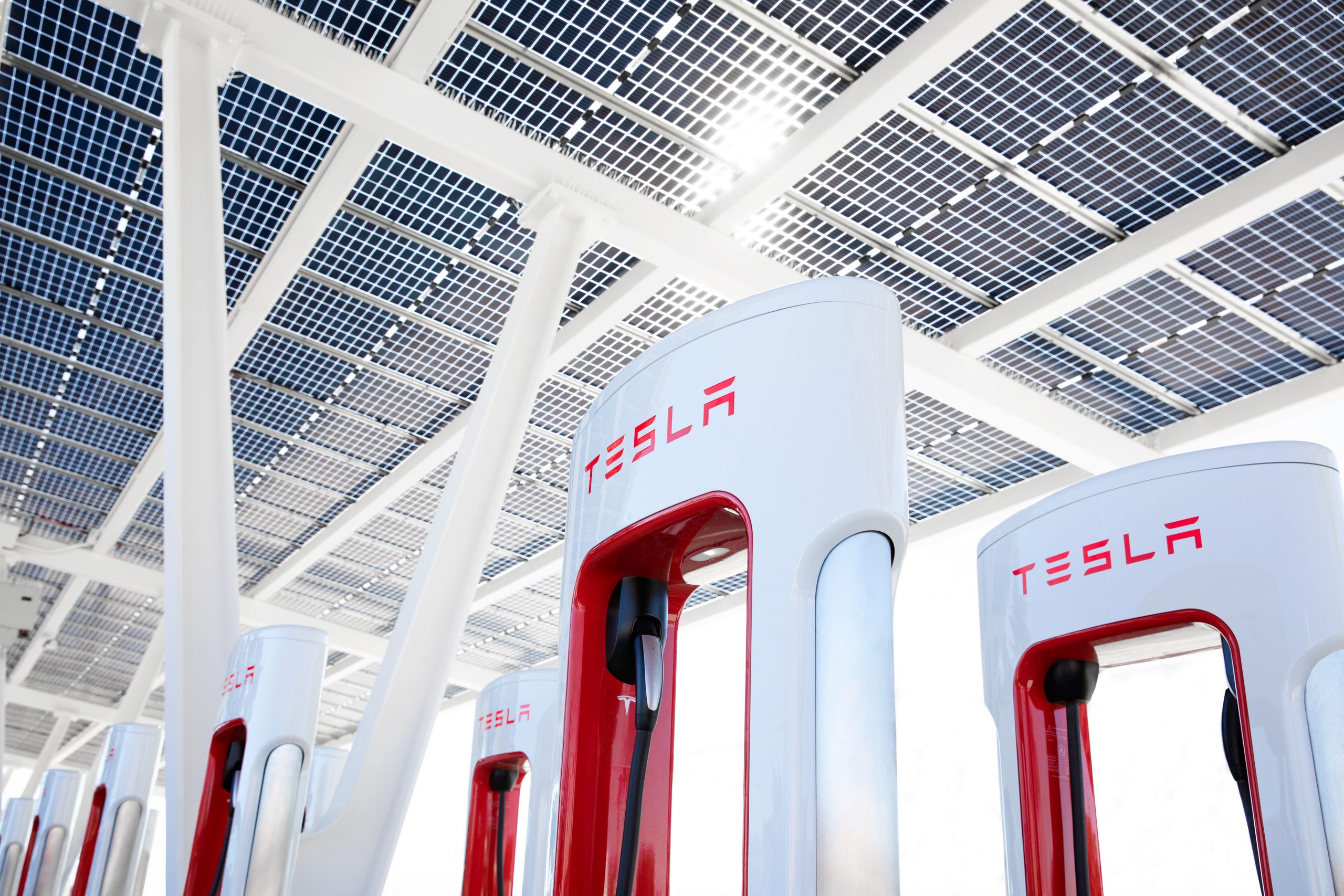
A California City Council is planning to weigh whether it would adopt a resolution that would place a ban on its engagement with Elon Musk companies, like Tesla and SpaceX.
The City of Davis, California, will have its City Council weigh a new proposal that would adopt a resolution “to divest from companies owned and/or controlled by Elon Musk.”
This would include a divestment proposal to encourage CalPERS, the California Public Employees Retirement System, to divest from stock in any Musk company.
A resolution draft titled, “Resolution Ending Engagement With Elon Musk-Controlled Companies and To Encourage CalPERS To Divest Stock In These Companies,” alleges that Musk “has engaged in business practices that are alleged to include violations of labor laws, environmental regulations, workplace safety standards, and regulatory noncompliance.”
It claims that Musk “has used his influence and corporate platforms to promote political ideologies and activities that threaten democratic norms and institutions, including campaign finance activities that raise ethical and legal concerns.”
If adopted, Davis would bar the city from entering into any new contracts or purchasing agreements with any company owned or controlled by Elon Musk. It also says it will not consider utilizing Tesla Robotaxis.
Hotel owner tears down Tesla chargers in frustration over Musk’s politics
A staff report on the proposal claims there is “no immediate budgetary impact.” However, a move like this would only impact its residents, especially with Tesla, as the Supercharger Network is open to all electric vehicle manufacturers. It is also extremely reliable and widespread.
Regarding the divestment request to CalPERS, it would not be surprising to see the firm make the move. Although it voted against Musk’s compensation package last year, the firm has no issue continuing to make money off of Tesla’s performance on Wall Street.
The decision to avoid Musk companies will be considered this evening at the City Council meeting.
The report comes from Davis Vanguard.
It is no secret that Musk’s political involvement, especially during the most recent Presidential Election, ruffled some feathers. Other cities considered similar options, like the City of Baltimore, which “decided to go in another direction” after awarding Tesla a $5 million contract for a fleet of EVs for city employees.
News
Tesla launches new Model 3 financing deal with awesome savings
Tesla is now offering a 0.99% APR financing option for all new Model 3 orders in the United States, and it applies to all loan terms of up to 72 months.
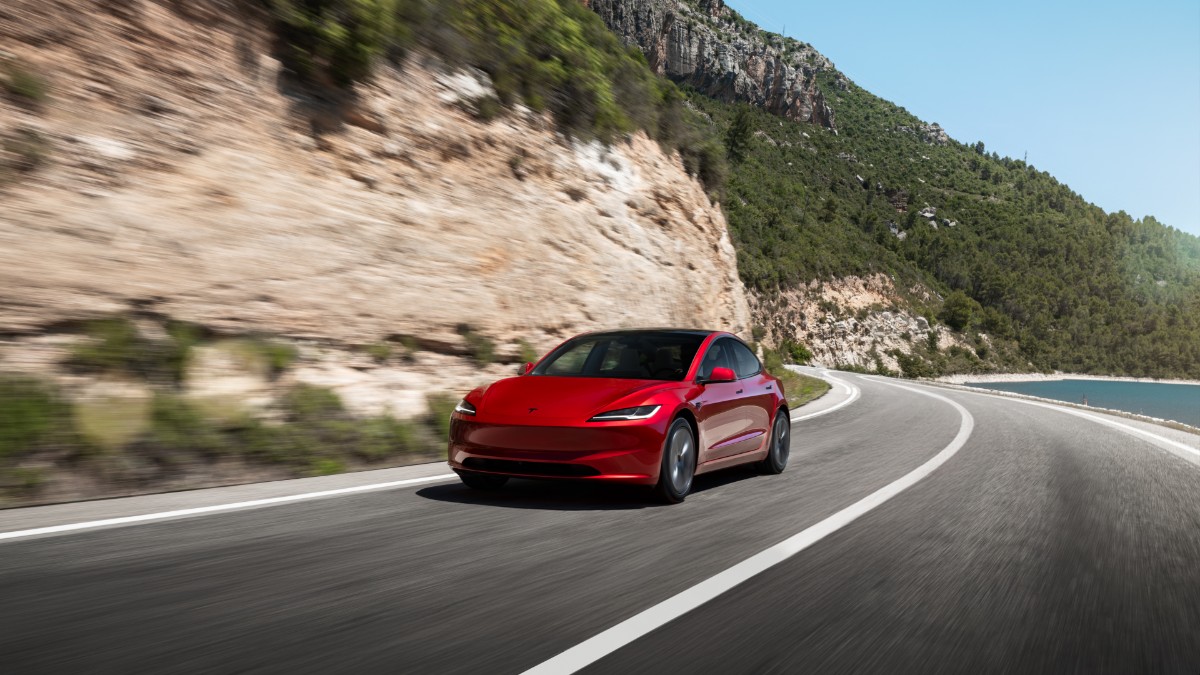
Tesla has launched a new Model 3 financing deal in the United States that brings awesome savings. The deal looks to move more of the company’s mass-market sedan as it is the second-most popular vehicle Tesla offers, behind its sibling, the Model Y.
Tesla is now offering a 0.99% APR financing option for all new Model 3 orders in the United States, and it applies to all loan terms of up to 72 months.
It includes three Model 3 configurations, including the Model 3 Performance. The rate applies to:
- Model 3 Premium Rear-Wheel-Drive
- Model 3 Premium All-Wheel-Drive
- Model 3 Performance
The previous APR offer was 2.99%.
NEWS: Tesla has introduced 0.99% APR financing for all new Model 3 orders in the U.S. (applies to loan terms of up to 72 months).
This includes:
• Model 3 RWD
• Model 3 Premium RWD
• Model 3 Premium AWD
• Model 3 PerformanceTesla was previously offering 2.99% APR. pic.twitter.com/A1ZS25C9gM
— Sawyer Merritt (@SawyerMerritt) February 15, 2026
Tesla routinely utilizes low-interest offers to help move vehicles, especially as the rates can help get people to payments that are more comfortable with their monthly budgets. Along with other savings, like those on maintenance and gas, this is another way Tesla pushes savings to customers.
The company had offered a similar program in China on the Model 3 and Model Y vehicles, but it had ended on January 31.
The Model 3 was the second-best-selling electric vehicle in the United States in 2025, trailing only the Model Y. According to automotive data provided by Cox, Tesla sold 192,440 units last year of the all-electric sedan. The Model Y sold 357,528 units.
News
Tesla hasn’t adopted Apple CarPlay yet for this shocking reason
Many Apple and iPhone users have wanted the addition, especially to utilize third-party Navigation apps like Waze, which is a popular alternative. Getting apps outside of Tesla’s Navigation to work with its Full Self-Driving suite seems to be a potential issue the company will have to work through as well.
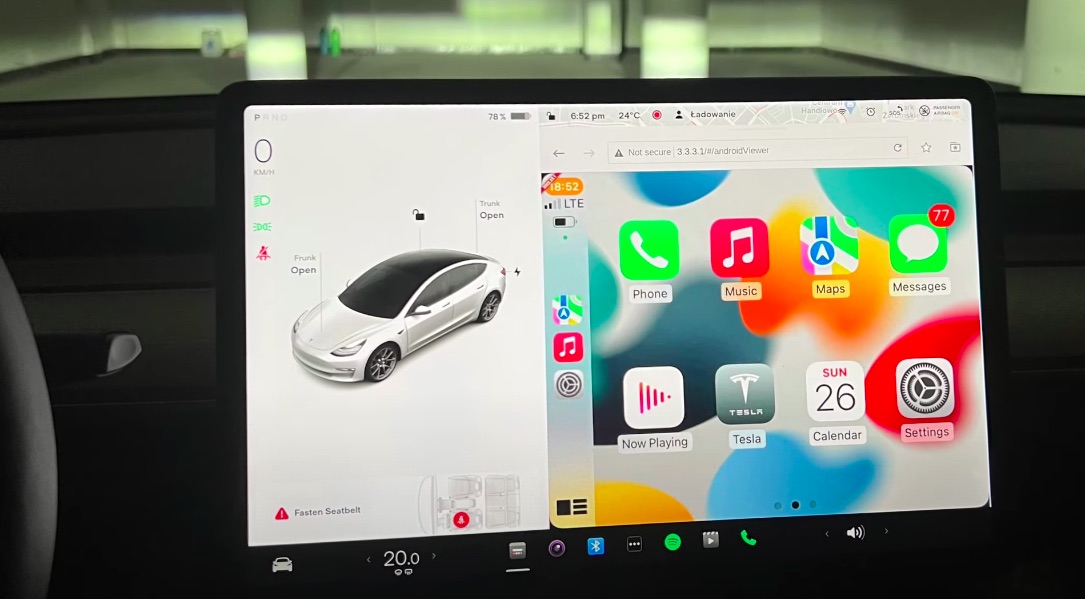
Perhaps one of the most requested features for Tesla vehicles by owners is the addition of Apple CarPlay. It sounds like the company wants to bring the popular UI to its cars, but there are a few bottlenecks preventing it from doing so.
The biggest reason why CarPlay has not made its way to Teslas yet might shock you.
According to Bloomberg‘s Mark Gurman, Tesla is still working on bringing CarPlay to its vehicles. There are two primary reasons why Tesla has not done it quite yet: App compatibility issues and, most importantly, there are incredibly low adoption rates of iOS 26.
Tesla’s Apple CarPlay ambitions are not dead, they’re still in the works
iOS 26 is Apple’s most recent software version, which was released back in September 2025. It introduced a major redesign to the overall operating system, especially its aesthetic, with the rollout of “Liquid Glass.”
However, despite the many changes and updates, Apple users have not been too keen on the iOS 26 update, and the low adoption rates have been a major sticking point for Tesla as it looks to develop a potential alternative for its in-house UI.
It was first rumored that Tesla was planning to bring CarPlay out in its cars late last year. Many Apple and iPhone users have wanted the addition, especially to utilize third-party Navigation apps like Waze, which is a popular alternative. Getting apps outside of Tesla’s Navigation to work with its Full Self-Driving suite seems to be a potential issue the company will have to work through as well.
According to the report, Tesla asked Apple to make some changes to improve compatibility between its software and Apple Maps:
“Tesla asked Apple to make engineering changes to Maps to improve compatibility. The iPhone maker agreed and implemented the adjustments in a bug fix update to iOS 26 and the latest version of CarPlay.”
Gurman also said that there were some issues with turn-by-turn guidance from Tesla’s maps app, and it did not properly sync up with Apple Maps during FSD operation. This is something that needs to be resolved before it is rolled out.
There is no listed launch date, nor has there been any coding revealed that would indicate Apple CarPlay is close to being launched within Tesla vehicles.








